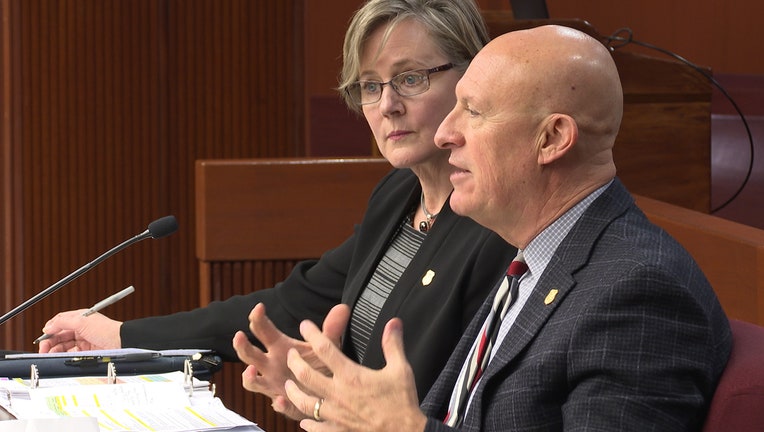GBI Director pitches outsourcing testing as evidence backlog grows

ATLANTA - Just 15 months after the Georgia Bureau of Investigation cleared a backlog of more than 3,000 old sexual assault kits, they now have more than 700 new ones that need testing.
In a meeting of the House Appropriations Public Safety Subcommittee Monday, GBI Director Vic Reynolds told lawmakers he would like to implement a new strategy to deal with the backlog in the midst of budget cuts.
"The bureau and particularly the lab needs to do things a little differently," explained Director Reynolds.
Reynolds wants the GBI lab to outsource testing of drug evidence and DNA from non-violent crimes like burglaries and entering autos to a private lab. He believes that would improve efficiency and cut down on costs as well as allow GBI employees to focus on processing evidence from rape and murder cases.
According to the GBI, they currently receive 200-250 new sexual assault evidence kits each month and are only able to process about 100 per month.
"I really, truly believe that with a combination of scientists, a combination of outsourcing, a combination of the lab really taking a deep dive in how we operate, that we can remedy this problem of a backlog," Reynolds said.
The pitch comes as lawmakers consider significant cuts in next year's budget. The GBI has proposed eliminating nine positions in the crime lab, which concerns some members of the House, including State Rep. Scott Holcomb, D-Atlanta, who championed legislation in 2016 to require the testing of backlogged rape kits.
"What we heard is that we have a backlog today and that backlog is accruing on a month-to-month basis. So, unless we take action, we are going to have a new backlog," said Rep. Holcomb. "But that is unacceptable to me and I have a feeling that is unacceptable to the House as a whole."
Subcommittee Chairman Andrew Welch, R-McDonough, said lawmakers need more information about how much funding would be required to outsource that evidence because that figure is not included in the budget.
"We'll need to know what that number is," Welch told Reynolds. "Because if you want a streamlined process and you also want to outsource, then we need to know how much you're anticipating it's going to cost."
Reynolds said the drug tests will cost $160 per case, but did not have an overall cost estimate. He said he hoped to get that to members of the subcommittee in the next few days.

